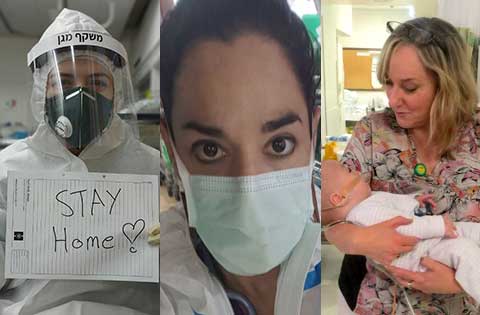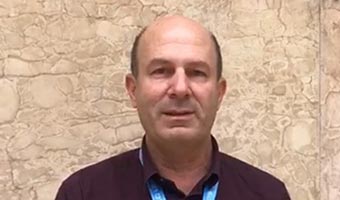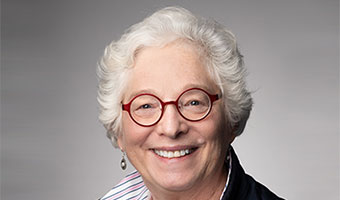
Join us in celebrating the outstanding nurses of the Hadassah Medical Organization in Israel, just in time for International Nurses Day on May 12.
1. Daphna Hyvroni
Israeli Nurse of the Year Prize Goes to Hadassah NICU Head Nurse
The Israeli Ministry of Health just singled out 12 professionals for its highest recognition for nurses. One of them is Daphna Hyvroni, head nurse at the neonatal intensive care unit (NICU) at Hadassah Hospital Mount Scopus.
2. Marah Hasan
Hadassah's Arabic-Speaking Nurses Seek to Keep People Safe During Ramadan
"Our work now is so important that it is higher priority than anything else," says Marah Hasan, 24, a nurse at Hadassah Hospital's Outbreak ICU. "I have never spent Ramadan away from my family. Nonetheless, I'm sticking to my decision, which is better for everyone, including my patients."
3. Gila Zarbiv
"Women are Magical," Says Hadassah Nurse Midwife
Dressed in layers of personal protective equipment, Hadassah Medical Organization nurse midwife Gila Zarbiv delivers the babies of mothers infected with COVID-19.
4. Odeya Tel Tsur
Hadassah Trauma Nurse Recognized as Woman of the Week
The adult treatment area is now a virology unit and half of the children’s trauma area is dedicated to COVID-19. Yet in the face of it all, Hadassah Hospital Ein Kerem head trauma nurse stays positive. Maybe that’s why Israeli online MedNews named her the Woman of the Week.
5. Julie Benbenishty
From the Army to a COVID-19 Unit: A Hadassah Nurse on the Front Lines
“At Hadassah, we believe that if the soul is broken, if it’s not treated right, the body will die.” Only 16 years old, she helped care for wounded army soldiers at Hadassah Hospital Ein Kerem. Now she is taking care of COVID-19 patients in one of Hadassah’s special outbreak units.
6. Rely Alon
On the Front Lines of Battling COVID-19
Rely Alon, deputy director for Nursing and Health Professions, has played a key role in setting up COVID-19 wards in the Round Building at Hadassah Hospital Ein Kerem and organizing hospital staff throughout the crisis. “We’re used to hands-on human contact. We nurses could no longer walk in and check on patients. We installed closed-circuit televisions in order to speak by intercoms."









